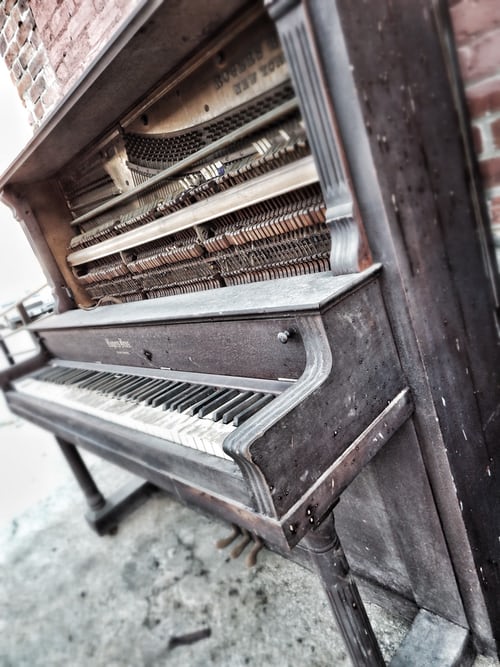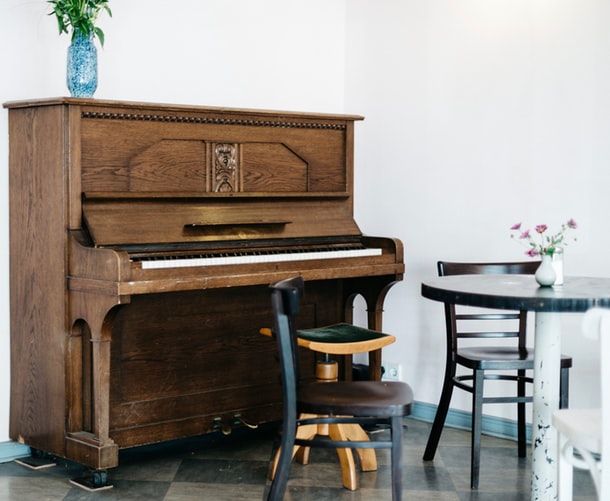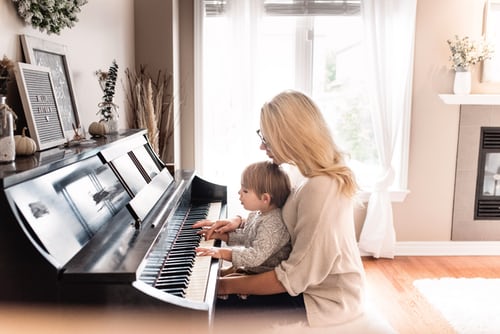Tips for Buying A Used Piano
 Don't be this guy! |
What Do You Want?
The first tip is to really figure out what you want. Ultimately what you want depends on what your needs are. The tips here are geared mostly for first timers looking for a piano for their kids to learn on or possibly for themselves to get back into as adults. If your needs are higher than that (you are an active player, looking for a piano to grow with), the most important advice is to find a technician you like, trust and can work with. This guy or gal will be the one to keep you from any technical surprises.
Pianos Wear Out
They do not last for ever, no matter what your neighbor says. And the technology of building pianos has progressed dramatically. The pianos made in the 60's through the 70s, especially American brands, were made to a different technical and tonal standard. You can thank Yamaha and Kawai for forcing most American makers to get better or get out and a lot of them got out. This is also a reason you should have a technician look at any piano you are considering buying. Wood dries out, glue joints crack and fail, bridges crack. The glue used in piano building today is far superior to that which was used 30 years ago.
Learn Something About Piano Tone and Touch
You need to have some understanding of what is good tone and touch, and you do this by looking at a lot of pianos and talking to people. Yes, I know, you probably don't want to go through all that for a inexpensive piano for your kids to learn on. In that case, WORK WITH A GOOD TECHNICIAN. Somebody has to be able to give you guidance on what is right and what is not right. The goal here is to not get suck with a lemon!
Avoid Free To $1000
You don't want to be the one stuck taking it to the dump. Sometimes true deals show up under $1000, but not very often.

|
Avoid Brand Names You Don't Recognize …unless…
You should also be cautious about brands that are now out of business. This gets a little tricky because some of those names have been resurrected on modern, decent quality pianos. But these pianos are newer and most often more expensive. I have seen very few Kimballs or old Wurlitzers that I would recommend, despite how prominent those names were in the industry.
Don't Ever Buy A Spinet
Spinet pianos are compromises, in touch, tone and serviceability. A number of technicians I know won't work on spinets because of the difficulty in getting to the action and in tuning. Spinet pianos need to be gone from the marketplace. You don't want to get stuck with that responsibility.
Always Have A Technician Inspect It
No matter the brand, no matter the story, ALWAYS have a skilled technician inspect a used piano you are considering. There are simply too many variables to be considered to not get a quick professional evaluation. This does not need to be expensive, you don't need a written report, you just need a thumbs up or down review. consumer by either taking the time to really explore the world of pianos, talking and listening and developing your own awareness. This is time consuming but is ultimately the most rewarding path. The other way is to find a good technician you can relate to and get him or her to help you understand the business and to look at and advise you on individual pianos.
 Buy The Best Piano You Can
Buy The Best Piano You Can
Piano playing is hard and it helps to have all kinds of positive reinforcement mechanisms to keep kids interested and involved. If you bring a newer, shiny, fully functioning and good sounding piano into your home, it will help in subtle ways to keep kids focused and interested. There is a certain logic to the idea of "I'll get something really cheap now and if they stick with it, I'll get something better." If you bring in a cheap instrument I can assure you the deck is stacked against your kids keeping with piano playing. They will know!